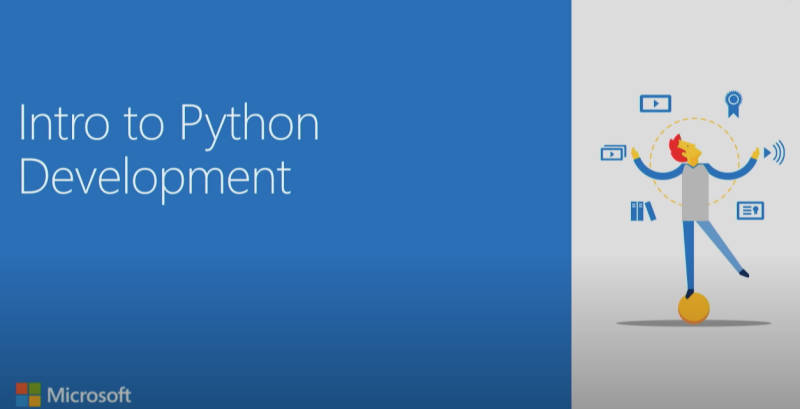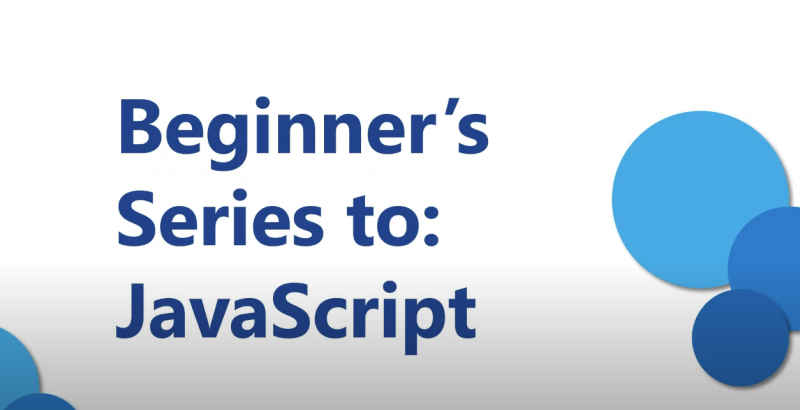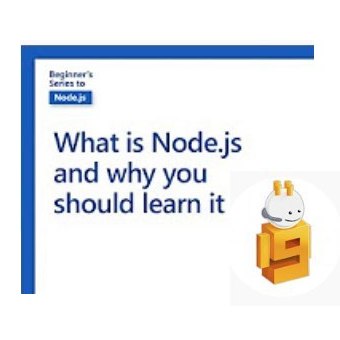| Learn JavaScript and Node.js With Microsoft |
| Written by Nikos Vaggalis | |||
| Thursday, 15 October 2020 | |||
|
Microsoft loves Open Source and loves Python. Now it seems, it loves JavaScript too? Who would have thought that someday Microsoft would promote and teach languages and frameworks not based on .NET? Ten or more years ago Microsoft's interest in dynamic languages materialized under the Dynamic Language Runtime project, a project that aimed to port such languages to the CLR to allow them to inter-operate with the .NET languages under the same roof. I shared my thoughts about in a review of Pro DLR in .NET 4.0 book. The following excerpt from that review reveals the essence of the DLR: A runtime that sits atop the CLR and hosts dynamic languages.It makes implementing a new language, be it a dynamic, application or domain specific one, much easier to build since you can use ready made parts and leverage existing functionality; for example instead of implementing a GC you plug into the CLR's GC. IronPython and IronRuby were just such dynamic language ports and there was also third party IronJS. However, within a short space of time, Microsoft axed them. As to why, there was a lot of speculation, as we reported in Microsoft's Dynamic Languages Are Dying: There have been suggestions that the once well supported project (Ruby on Rails) simply clashed with Microsoft's recent ASP .NET MVC developments. After all you don't really want two MVC frameworks in the same .NET development space and while IronRuby may just be a language it is natural to think of Rails when considering an MVC framework to use with it. Perhaps it was feared that comparisons between a .NET Rails and ASP .NET MVC might not have been flattering. Taking the matter further, I even posed a question to Scott Hunter, Director of Program Management .NET, on his January 2019 blog post "Starting the .NET Open Source Revolution", with: Why were the DLR based languages such as IronPython and IronRuby gone defunct? Were they victims of their success in that they were competent competitors to the .NET languages like C#? Scott's answer was: There were points in time where with .NET we just tried to do too many things at the same time. The DLR languages were more victims of us just trying to focus the basics of .NET again. During that time frame we were building new web frameworks based on competition and starting our open source journey. Back then we gave customers so many options that it made the platform appear more complicated. Since then Microsoft has changed direction. It now loves open source and everything Linux, even to the extend of porting SQL Server to it, see SQL Server on Linux, Love or Calculated Move?. Microsoft owns GitHub, see Microsoft GitHub - What's Different, and Visual Studio Code, the code editor that it open sourced in 2015 has continued to grow towards being a sophisticated IDE. Alongside all this, Microsoft started embracing languages other than C# and VB.NET. Offsprings of this love, this time, are not ports of those languages, but tutorials on Python, Javascript and NodeJS. The Python series was released last year and we covered it in
The Javascript is the latest language to come under the Microsoft spotlight. Beginner's Series to JavaScript is a 51-part YouTube course aimed at beginners in JavaScript who already have familiarity with another programming language. It has almost three hours of viewing in total. To get an overview of what the course is about and the level at which it is pitched some of its most representative snippets are:
The 26-part Beginner's Series to Node.js is also on YouTube. Again it is made of of bite-size snippets, three to six minutesd in length, including:
All of the videos are easy to follow intending to kickstart your journey into coding with Microsoft.
More InformationBeginner's Series to JavaScript Related ArticlesLearn Python with Microsoft or the University of Michigan Getting Started With React For Free aijs.rocks - JavaScript Enabled AI IronJS - In Conversation with Fredrik Holmström
To be informed about new articles on I Programmer, sign up for our weekly newsletter, subscribe to the RSS feed and follow us on Twitter, Facebook or Linkedin.
Comments
or email your comment to: comments@i-programmer.info |
|||
| Last Updated ( Thursday, 15 October 2020 ) |




